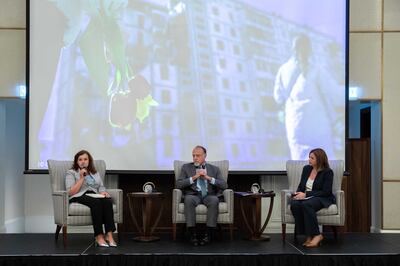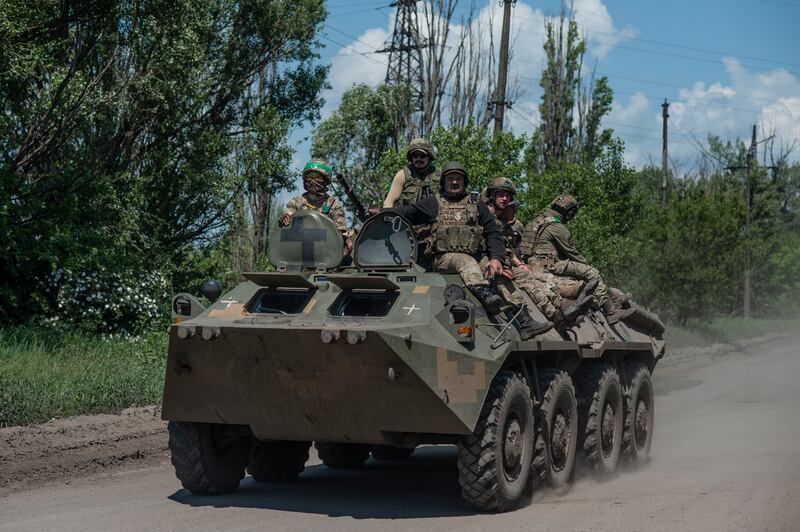Ukrainian President Volodymyr Zelenskyy wistfully goes through suits in his wardrobe, unworn since switching mostly to military fatigue at the onset of Russia's invasion in February last year.
It is one of the first scenes of Year, a documentary about the war, shown in The Ritz-Carlton, Amman on Monday to an audience of mostly Jordanian journalists.
The screening is part of an American diplomatic effort to challenge Russian narratives about the war, which US ambassador Henry Wooster says have significantly spread in Arab media and on Twitter.
“In the Middle East, we are seeing an extraordinary array of pro-Russia narratives,” he said, as he shared the podium with Myroslava Shcherbatiuk, Ukraine’s ambassador to Jordan.
“You can look at Twitter, you can look at the data, you can do the forensics. The extraordinary increase in the multiplication of the false Russian narratives has been astonishing.”

Moscow has portrayed the assault on Ukraine as a pre-emptive war against a western stooge intent on destabilising Russia and suppressing ethnic Russians who have lived in what is now Ukraine for centuries.
The film, by Ukrainian journalist Dmytro Komarov, describes the immediate aftermath of the liberation of Bucha, Irpin and Gostomel, three towns near Kyiv, barely a month after they were overrun by Russia in the early weeks of the war.
It was released on the first anniversary of the invasion.
Mr Komarov filmed the lifeless body of a man who had been blasted off his bicycle, and another with his hands tied behind his back, suspected of having been summarily executed by Russian forces.
He talks to Mr Zelenskyy and Ukrainian officers, portraying an unflinching belief among the leadership that Ukraine will push back against the invasion and even win the war.
Mr Wooster, who was a political officer in the US embassy in Moscow, was sanguine.
The Russian military has “proved to be an abject disaster when it attacked Ukraine” but Russia could continue to finance the war for a long time, he said.
“The war has been a strategic failure for Russia," he said. "A diplomatic conclusion" based on the UN Charter, which prevents the acquisition of territory by force, must be brought about.
“We don't care who brings the diplomatic initiative that brings President Putin to the table,” he said, in reference to Chinese and Arab mediation efforts.
“'What we cannot have, what you cannot have' is an acknowledgement of Russia’s aggression that says in effect that what they have done is legitimate.”
Jordan and other Arab countries have largely refrained from criticising Russia. But most voted last year in favour of a UN General Assembly resolution that condemned the invasion and demanded immediate Russian withdrawal.
Mr Zelenskyy spoke at an Arab summit last month in Riyadh. Observers regarded his invitation to the forum as part of a balancing act by Saudi Arabia and other Arab countries aimed at showing that they can improve ties with Moscow while distancing themselves from its actions in Ukraine.
Ms Shcherbatiuk said a Ukrainian solider with strong Jordanian roots had been killed defending territory in the north-west.
“No one could expect the scope and scale of atrocities that Ukraine has been facing,” she said. Jordan's official response to the war had been "balanced", she added.
"Please support us," she said. "Support us in your empathy, moral values, in your integrity. We are speaking about the common human values."







